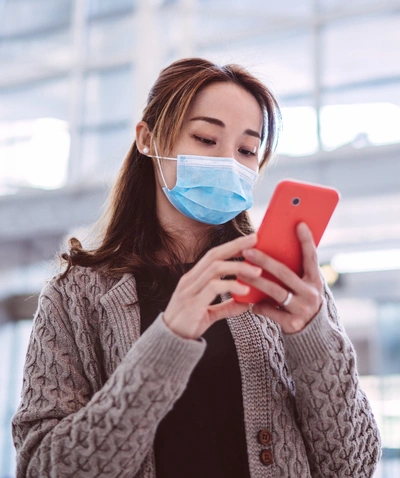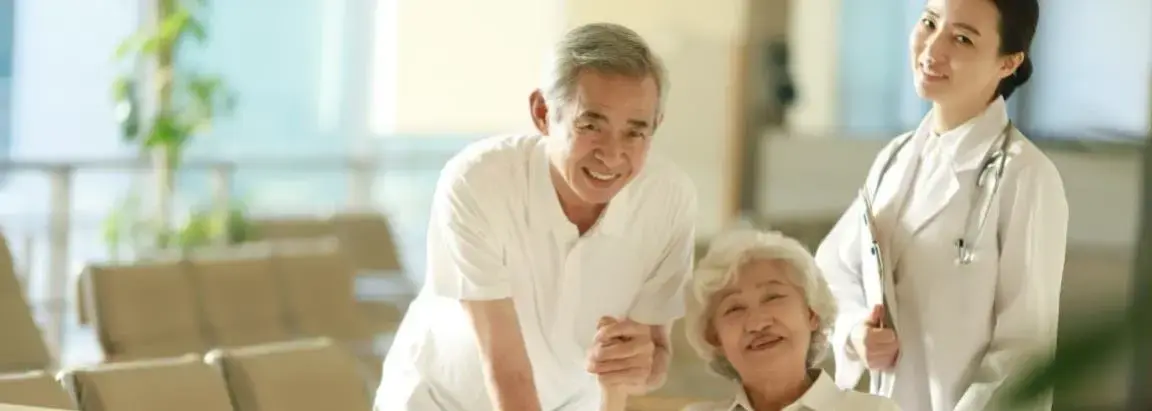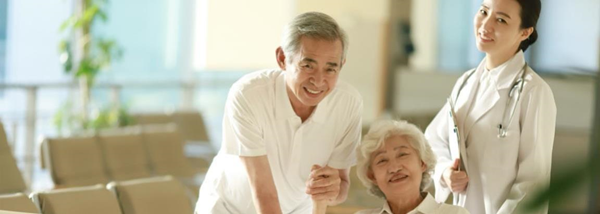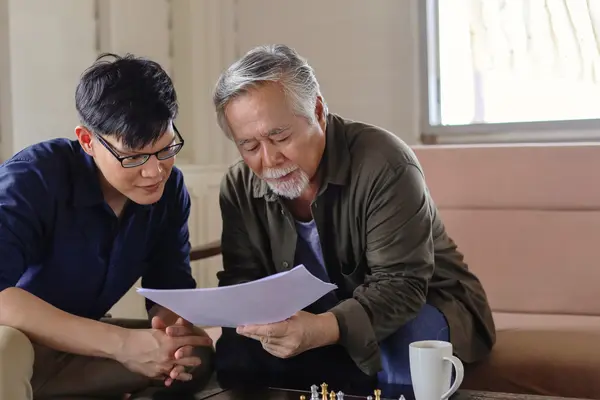Topics
Fall is the second leading cause of death from accidents or injuries worldwide. Fall is common among the elderly with 30% of those over 65 and 40% of those over 80 years old fall once a year.
Two-thirds of those who fall will fall again within a year. 50% of those who fall will be injured, while 10% will be seriously injured. Many older people are admitted to the emergency department for fall-related injury, while 1% of falls lead to hip fracture.
Although the likelihood of falls increases with age, we should not regard fall as a normal phenomenon of aging.
What are the factors that cause falling?
There are usually many factors that cause a fall. In order to prevent falling, we should find out the causes and take appropriate actions for fall prevention.
The most common reason for falls is the environment. Wet floors such as in the bathroom, dimly lit room, improperly secured carpet, or messy staircase can lead to falls.
As we get older, our muscles become weaker. This affects our strength and balance, leading to falls. Muscle weakness is due to the lack of physical exercise, arthritis, polymyalgia rheumatica (inflammatory disorder that causes muscle pain and stiffness), and other diseases.
Poor balance is caused by muscle weakness, stroke, and Parkinson’s disease, or by side effects of certain medications.
Dizziness or fainting can also cause falls. The most common cause of dizziness is postural hypotension (drop in blood pressure from lying down to sitting up or from sitting to standing) caused by dehydration, aging circulatory system, Parkinson’s disease, or medications to treat high blood pressure.
Inner ear problems such as labyrinthitis (inflammation of part of the inner ear) and benign paroxysmal positional vertigo (sudden sensation of spinning due to specific changes in the head’s position), fast, slow, or irregular heartbeat, dehydration, and anaemia can cause dizziness.
Other causes of falls include standing for too long (especially in hot or crowded places), low blood pressure, low blood sugar, foot problems such as corns, calluses, long or thick nails and ulcers, or shoes that are ill-fitting and inappropriate.
Diabetes, vitamin deficiency, or numbness in the feet prevent elderly people from feeling their feet on the floor and subsequently fall.
Dementia, memory loss, and confusion can affect an elderly person’s ability to judge risk of falls, prevent and identify harm while walking around.
Eye problems such as stroke-related visual problems, cataracts, or glaucoma can cause difficulty in predicting and spotting obstacles and hence cause slipping or tripping. If elderly people wear double-focus lenses, they may face difficulties walking up or down the stairs.
If they have problems with bladder or bowels causing them to rush to the bathroom, or they frequently go to the toilet during the day or night, their risk of fall may increase as well.
The more medications an elderly person takes, the more likely he is to fall. Some medication can cause side effects such as dizziness, instability, drowsiness, blurred vision, difficulty in thinking clearly and confusion.
Drugs commonly causing these symptoms include medication for low mood or anxiety, blood pressure medications, sleeping pills, epilepsy medications, and opioid painkillers.
Excessive alcohol drinking, especially when taken with some medication, can cause unsteadiness in the elderly and slow down their reactions.
Why should we prevent the elderly from falling?
Falls may be the first sign of a new disease or of their health condition worsening. Many health conditions that are new and temporary that cause falls are acute confusion, urinary tract infections, pneumonia, dehydration, anaemia, heart problems, stroke, and constipation.
It is prudent not to underestimate fall, as it may cause a series of serious injuries in the elderly. 50% of those who fall will have injuries such as joint dislocation, sprains, skin tearing, bruises, fractures, bleeding in the brain, disability, pain, and inability to walk.
A fall can cause an independent elderly to become bedridden. Long-term bed rest after a fall can cause dehydration, pressure ulcer, clots in the lower extremities or chest, and pneumonia.
The vicious cycle of falling
About 50% of those who fall will lose confidence or “afraid of falling”, while 25% would avoid activities such as walking, shopping, or socialising. As a result, a series of events will happen – loss of confidence, fear of activity, weakness, muscle atrophy, more prone to falls, and even bedridden.
This is a vicious cycle that is difficult to break. After a year, 50% of those who fall will be less able to mobilise. 35% will fall and lose the ability to selfcare, leading to a decline in independence or quality of life. They may not be able to stay in their own homes too.
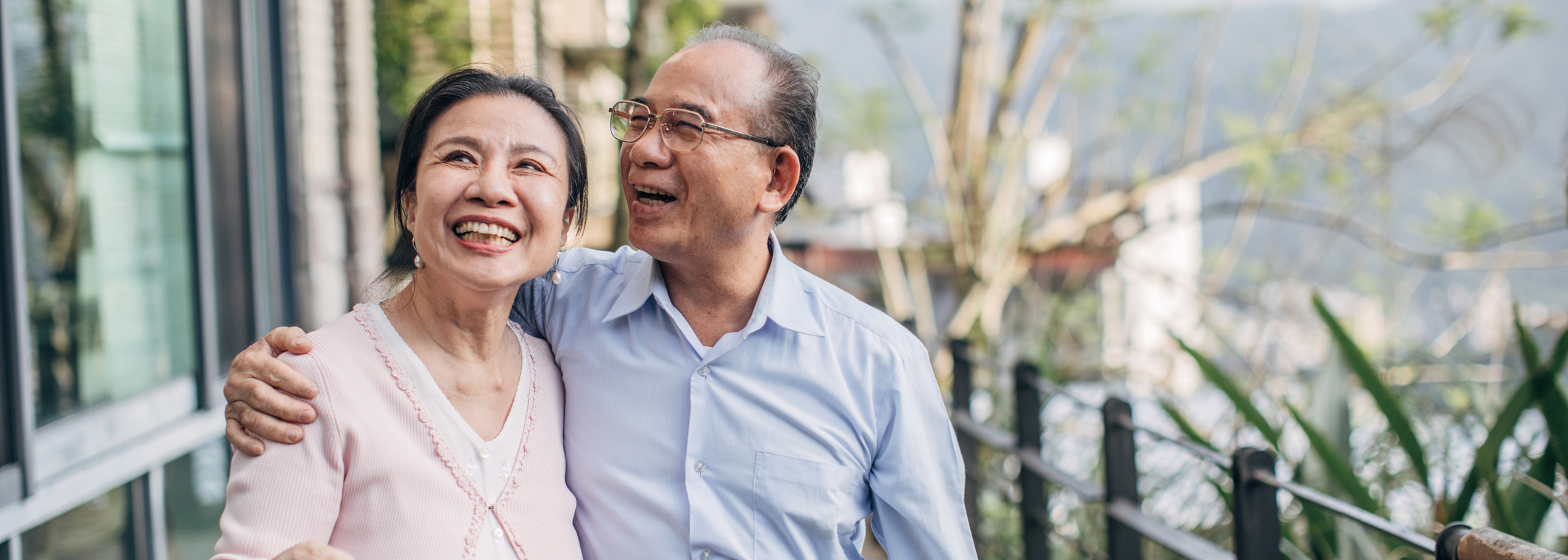
What are the steps to take to prevent the elderly from falling?
Here are some fall prevention steps:
Ensure safer environment
- Use non-slip mats in the bathroom.
- Clean spillage immediately to prevent slippery floors.
- Ensure all rooms, corridors, and stairs are well lit.
- Ensure no wires across paths.
- Avoid messy home corridors.
- Secure edges of carpets to the floor with tape.
- Place handrails on both sides of bathtubs, bathrooms, washrooms, and stairs.
Avoid activities with high fall risk
- Use handrails whenever possible when going up and down the stairs and while using the toilet.
- Keep things that are needed in lower cabinets so that climbing, stretching, and bending can be minimised.
- Avoid climbing stools and ladders.
- Avoid running up and down the stairs.
- Avoid walking on slippery floors with socks.
- Avoid wearing loose clothing to avoid tripping.
- Avoid carrying heavy items.
- Avoid going to crowded or slippery places.
Practice good personal care and safety
- Wear well-fitting and comfortable shoes with non-slip soles.
- Regularly trim toenails and take care of their feet.
- Replace the rubber sole of a walking stick that is worn out.
- Turn their body and head slowly.
- Maintain a stable gait at all times
- Wait for vehicles to stop before getting in and out of them.
- Slow down the speed of getting out of bed.
- Avoid drinking too much water before bed to get up many times at night.
Practice healthy lifestyle
- Do regular exercise to keep the bones strong and improve muscle strength and balance such as yoga, walking, tai chi, and qigong.
- Drink less alcohol, avoid smoking.
- Eat food high in calcium and vitamin D such as milk, broccoli, tofu, and so on.
Consult healthcare provider
- Consult physiotherapist for appropriate mobility aids. Physiotherapists are also able to provide advice and exercise to improve gait.
- If an elderly person takes more than three medications a day or falls again, consult a doctor who may reduce the dose of medications or remove unnecessary medication.
- If the elderly have vision or hearing problems, they can have vision or hearing tests and wear glasses and hearing aids when needed.
- Elderly people who fall frequently should have bone density scans to detect and treat osteoporosis. If there is osteoporosis (bone density and mass decrease, bones become porous and fragile), older people should regularly take anti-osteoporosis drugs. The risk of fractures is greatly reduced.
Book an appointment at Pantai Hospitals
A dedicated and expert team of Orthopaedic specialists at Pantai Hospital is available for consultation to provide the best care and assistance.
The rehabilitation team at Pantai Hospitals are trained to provide the best care for our patients. Because each patient is different and will present with their own set of issues and symptoms, treatment plans are personalised.
If you encounter a situation that requires medical attention, please seek immediate medical attention at the Accident and Emergency (A&E) department at your nearest Pantai Hospital.
Pantai Hospital has been accredited by the Malaysian Society for Quality in Health (MSQH) for its commitment to patient safety and service quality.


